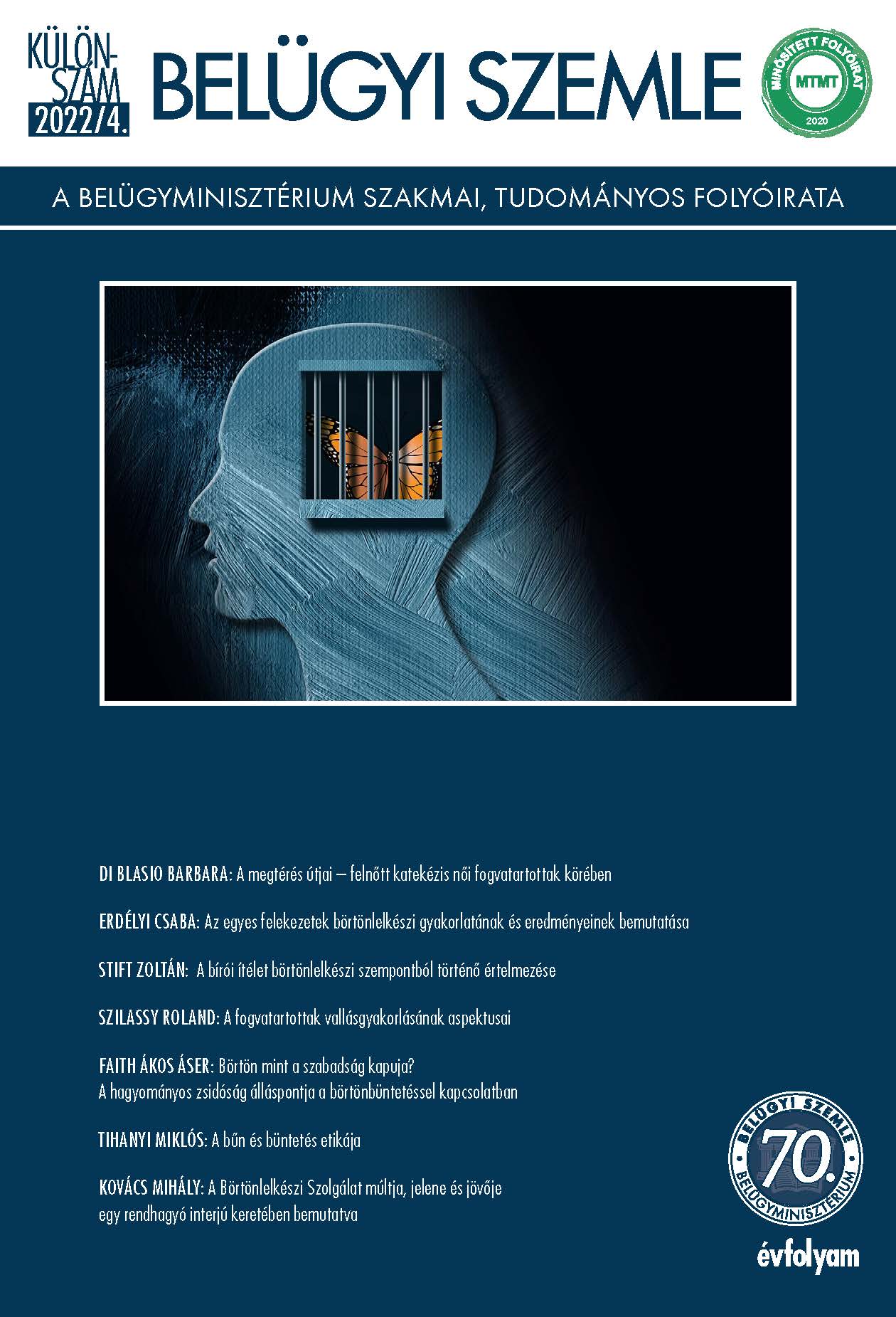Abstract
Aim: The purpose of the study is to emphasize the supporting importance of religious education. The additional opportunities inherent in adult catechesis, which affect female prisoners and prepare them for reintegration, are presented in the study.
Methodology: In our qualitative descriptive-analytical research, in addition to historical sources, based on interviews and autobiographical data, we review the historical background of the contemporary institutional methodology of religious education. In our case study, we examine the historical circumstances of the founding of the Márianosztra Penitentiary and Prison in Hungary, as well as the educational work carried out by the Daughters of Charity for nearly a hundred years, organized specifically for women based on an international model.
Findings: We can see that since the 19th century, attention has been paid to the treatment of female prisoners in Hungary, in which the sacrificial role of the Church, especially the role of the Daughters of Charity, was prominent among the female religious orders. In addition to employment, one of the important ways of educating women led through catechesis.
Value: We know little about the effectiveness of the development work taking place in prison, but nowadays, in our globalized and confused world, we can reach back to a well-known and important method, namely consciously planned religious education, that provides psychological support and conveys moral values. Based on our case study, it becomes possible to establish good practices supporting the successful reintegration of female prisoners.

